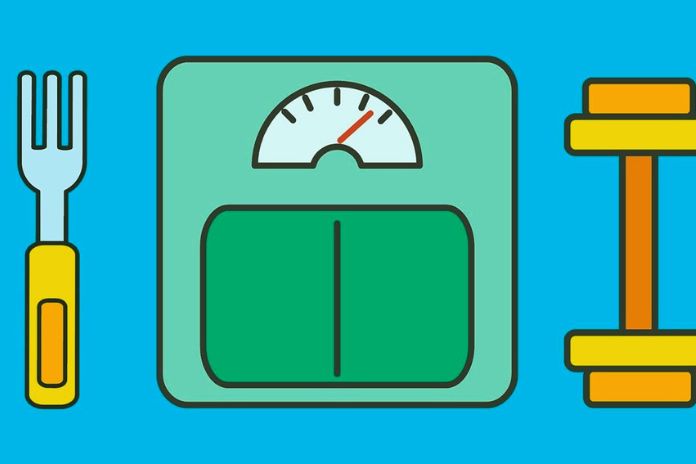Small habits and the right choices will help you keep your body healthy and full of energy to face daily activities.
In some cases, being overweight is a condition that can lead to obesity, a condition that causes changes that compromise our health. In addition, being overweight also compromises health in some way. Hypertension, diabetes, joint problems, and high cholesterol are complications caused by excess body fat.
All these aggravating factors end up making overweight people seek fast weight loss. In this context, the question is: to what extent do miraculous and restrictive diets guarantee the maintenance of ideal weight?
If your goal is to lose weight with health, you must consider effective long-term results. This, in addition to avoiding the unwanted accordion effect, allows you to start a food reeducation.
Schedule An Appointment With Your Doctor
Before creating habits focused on healthy weight loss, you need to be accompanied by an expert. In that case, consider scheduling an appointment with your general practitioner, cardiologist, or endocrinologist.
The doctor will make an initial clinical evaluation and order routine tests to evaluate your cholesterol and glucose levels, among other data. If there are any changes in these exams, a more detailed investigation will be carried out.
Participate In A Food Reeducation Program
This type of approach will be responsible for creating a plan for your profile. In addition, access to a multidisciplinary team will help you in the food reeducation process. Mainly to develop a method according to your food preferences.
Weight Watchers has in-person and online plans to have freedom without compromising your schedule and routine.
Eat Full Meals
The idea that to lose weight, you have to “close your mouth,” as common sense says, must be deconstructed. The important thing is to build healthy eating habits without restrictions to ensure sustainable weight loss over time while ingesting the nutrients your body needs.
If we go many hours without eating, the glucose level tends to decrease. In this case, the body starts releasing a hormone called ghrelin, produced in the stomach and sends information to the brain, thus triggering the hunger signal.
With a lack of glucose and an excess of ghrelin in the blood, our brain understands that we need more food than we do. In this case, we make meals high in fat, sugars, and other unhealthy choices.
Eat Foods That Increase Satiety
A variety of foods can be inserted into your menu to help you lose weight with health. The food reeducation program provided by Weight Watchers will help you insert them more assertively into each meal.
With this, you will know how to prepare and measure portions, as well as learn delicious recipes.
Fruits, whole grains, lentils, beans, chickpeas, vegetables, and legumes, for example, have great sources of nutrients that guarantee healthy weight loss.
You will find that giving up what you like is unnecessary. In this case, the most nutritious choices that satisfy your hunger are taken into consideration.
Move
The WHO ( World Health Organization ) recommends at least 150 minutes of moderate physical activity per week. This number is required for a person to be considered active.
If you are not in the habit of exercising, you can start with small activities. The tip is to walk, cycle, and dance, among other actions that can be pleasurable and very healthy.
Decrease Your Sugar And Salt Intake
Excess salt has a high amount of sodium. If not consumed in moderation, this mineral can cause fluid retention, high blood pressure, and other heart problems.
In the case of sugar, if you extrapolate the recommended dose for your body, it can turn into fat accumulation, especially in the belly region. In addition, excessive cake, soft drinks, and sweets consumption can trigger diabetes.
Sleep Well
Sleeping well is extremely important for healthy weight loss. Quality sleep helps in the regulation of hormones, such as leptin and ghrelin, which act in controlling hunger.
Ideally, you should sleep between 6 and 8 hours. This period is enough to recover energy and regulate body functions. According to data provided by the World Health Organization, a healthy person can spend around 80 calories per hour of sleep.
Drink Plenty Of Fluids
Fluid intake contributes to healthy weight loss. It is recommended that you drink between 30 to 35 ml of water per kg of body weight. On average, this represents approximately 2 liters.
Water intake improves intestinal transit and keeps the skin and other organs hydrated. It assists in the release of toxins, so it is essential to drink water several times a day; preferably, the first glass should be consumed as soon as you wake up.
Respect Your Process
One of the biggest problems caused by restrictive diets is not considering people’s individuality. Remember that your body is unique. What you need is to learn to relate to him.
You will see that it is possible to strengthen your self-esteem, respect your process and discover that the secret to your well-being lies in small habits that can be easily included in your routine.
Also Read: Seven Foods To Lose Weight Naturally

